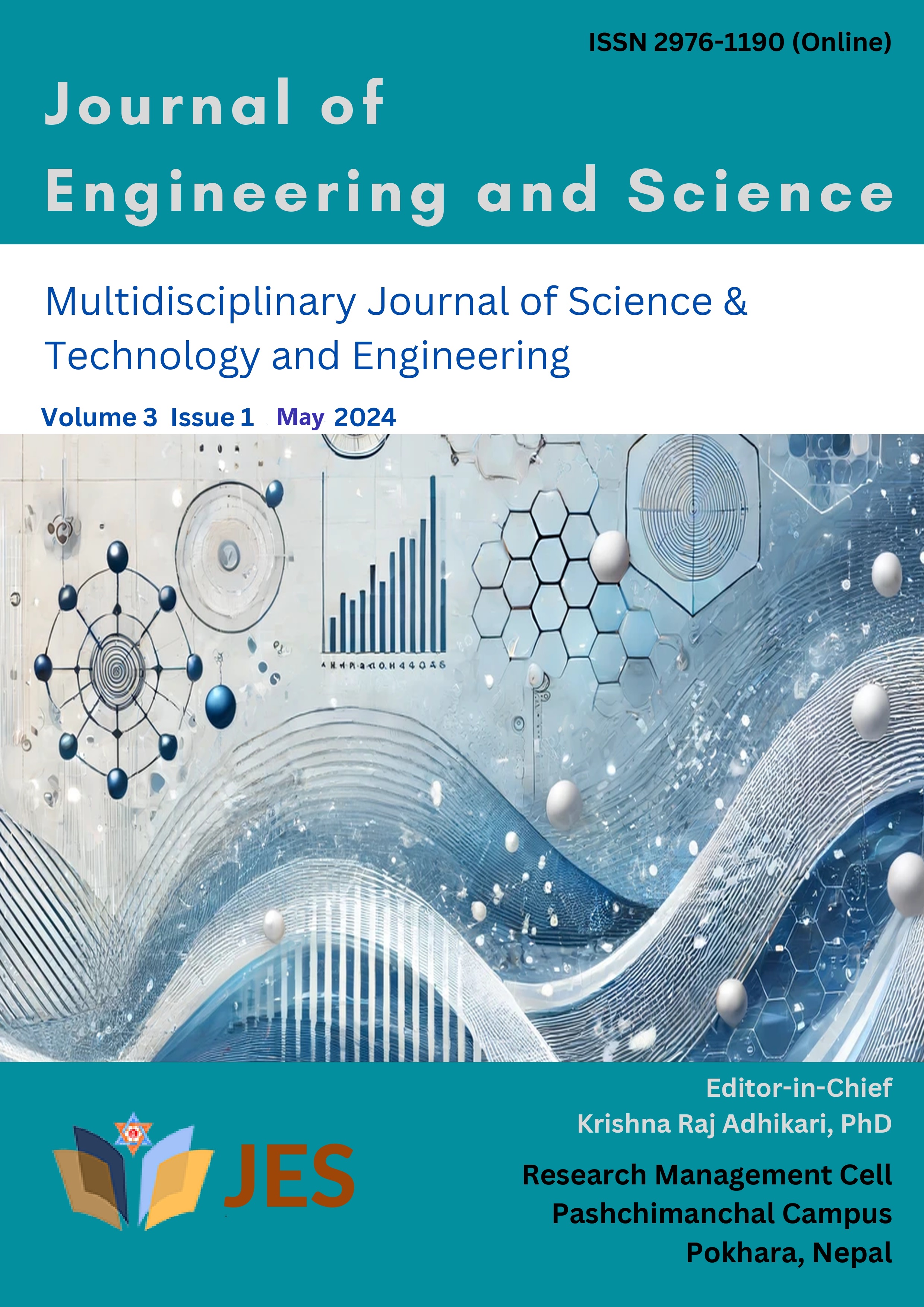Sustainability Analysis of Community-Managed Rural Water Supply Project: A Case Study of Kaski District
DOI:
https://doi.org/10.3126/jes2.v3i1.66230Keywords:
Economic, Environmental, Institutional, Social, TechnicalAbstract
After the 1992 International Conference on Water and the Environment in Dublin, a new approach to rural water supply was adopted being that the water should be managed at the lowest appropriate level, with users involved in the planning and implementation of projects. As per the data of DWSSM (2019) even though the basic level water supply coverage of Nepal is 87.22% among the water supply schemes providing service to the people only 28.13% of the schemes are fully functional. The lack of functionality questions the investment of different agencies as projects do not operate throughout project life and the public are facing the problem of not getting safe and reliable water. The main aim of this study was to assess the post-construction status of these projects in relation to their sustainable management. For this, six water supply projects completed over the last five years have been studied. During the study, the data was collected from the structured questionnaire, focal group discussion, Key informants’ interviews and field observations. These water supply projects were evaluated based on five main criteria namely economic, technical, social, institutional, and environmental factors. From the study it is observed that the sustainability score of Syaude Lifting WSP is 62.82%, Serokhola WSP is 66.74%, Lumre WSP is 64.25%, Sudame WSP is 54.97%, Bhachok WSP is 63.74% and Chisapani WSP is 76.90%. The economic and technical aspect of sustainability is found poor in all of these water supply projects. The major problem faced by the community is the lack of financial resources and technical capacity-building programs in the construction stage which have ultimately hampered the project's sustainability. Post-construction training, technical and capacity-building training, support policies and programs are important requirements for the sustainable development of rural water supply systems.
Downloads
Downloads
Published
How to Cite
Issue
Section
License
Copyright (c) 2024 The Author(s)

This work is licensed under a Creative Commons Attribution 4.0 International License.
CC BY: This license allows reusers to distribute, remix, adapt, and build upon the material in any medium or format, so long as attribution is given to the creator. The license allows for commercial use.




